A publication “National model to evaluate environmental impacts of cattle production systems in Uruguay” on the new Livestock Environmental Assessment (EMAG) has been released.
The EMAG is a decision support tool that allows simulating the environmental performance of livestock systems in Uruguay and thus evaluating their current situation, or what aspects to improve to contribute to a lower environmental impact of livestock production systems. This tool was developed within the framework of the Uruguayan Family Farm Improvement Project (UFFIP) in order to assess environmental changes in livestock systems and to serve as an essential support to improve knowledge at the level of producers and technicians.
Jointly developed by The National Institute of Agricultural Research (INIA), the University of the Republic – Faculty of Veterinary Medicine and Faculty of Agronomy, Institute of Agricultural Plan, Uruguay and AgResearch, New Zealand, the publication provides an overview of why a national model for cattle systems is needed and the specification of a complete animal biology model with modules for estimating resource use and environmental emissions.
The publication is available here. To use the EMAG tool, click here.
On 12 August 2020, the GRA and CCAFS successfully hosted the first of 12 webinars. This series will build technical capability, transfer knowledge and facilitate international collaboration for CLIFF-GRADS Alumni. They provide a platform for students in the programme, in particular the Round 3 Alumni, to present their PhD research and collaborate with their CLIFF-GRADS peers. In addition, the series will host a series of guest speakers including:
- Sir Peter Gluckman (Chair of INGSA and president-elect of ISC),
- Olia Glade (Director, MRV Systems at GHGMI),
- Dr Andreas Wilkes (Associate Expert, UNIQUE Forestry and Land Use GmbH),
- Professor Chevalier Dr. John R. Porter (Emeritus Professor of Agriculture and Climate Change, University of Greenwich), and
- A panel of farmers from the WFO Gymnasium Programme
The welcome session provided an overview of the history of CLIFF-GRADS and it’s objectives in the context of global agriculture emission management in a changing climate. We heard first-hand experiences from CLIFF-GRADS Alumni Samuel Anuga of Ghana, Titis Apdini of Indonesia, Florencia Garcia of Argentina and Yuri Gelschleichter of Brazil. The session included an introduction to the resources available to support new CLIFF-GRADS awardees as they begin to prepare for their scientific and technical training.
To register for upcoming webinars, please click here. Sessions intended for the students will be restricted to CLIFF-GRADS Alumni only.
The presentation slides are available here.
A Special Issue of the Animals Journal on “Grazing Livestock Systems: Measuring and Mitigating Enteric Methane Emissions” are seeking original contributions from researchers working on innovative application of methane mitigation strategies and measurement methods that can be applied to grazing systems.
The Guest Editors of this Special Issue are Dr. César S. Pinares-Patiño (The Agribusiness Group, Lincoln, New Zealand), Dr. Arjan Jonker (AgResearch, Palmerston North, New Zealand) and Dr. Camila Muñoz (Instituto de Investigaciones Agropecuarias, INIA Remehue, Osorno, Chile).
For more information, please click here
Manuscript submission deadline: December 31, 2020
Bertin Takoutsing from Cameroon completed his CLIFF-GRADS research stay at ISRIC – World Soil Information, supervised by Dr. Gerard Heuvelink. He is in the final stages of his PhD at Wageningen University in The Netherlands.
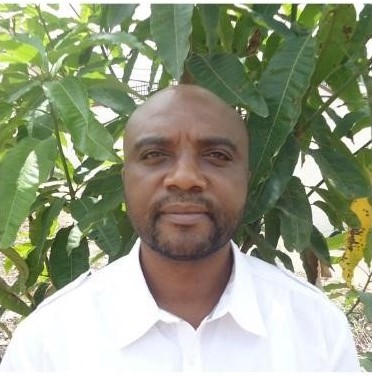
Quantification of the uncertainty in DSM products is very important for policy decision makers and land users, as decisions based on inaccurate soil information can ultimately have extensive and profound impacts, and impair end-users’ decisions.
Land health projects are consistently included among the priorities in the assessment of carbon sequestration potentials and soil organic carbon (SOC) stocks. Most of these projects use proximal soil sensing (PSS) methods such as Mid-Infrared and Near-Infrared (MIR/NIR) spectroscopy to generate soil data used in digital soil mapping (DSM) processes. Though these PSS methods are cost-effective, and time-saving as compared to traditional wet chemistry techniques, errors and uncertainties that are propagated through PSS methods are often ignored or neglected. This may lead to inaccurate DSM model outputs and poor decisions by the end-users. There is need for further exploration of the DSM approaches that account for uncertainties in soil measurements to improve the reported accuracies of the final SOC estimates.
As a CLIFF-GRADS recipient and during my PhD stay at ISRIC – World Soil Information, Wageningen, The Netherlands, I was involved in the research project that focused on incorporating measurement errors in soil observations in the state-of-the-art DSM approaches used to map carbon potentials and soil organic carbon (SOC) stocks. This was also a capacity building opportunity to improve my scientific knowledge and skills on geostatistics, spatial analysis and digital soil mapping that enable me to enhance my PhD research outputs both in content and quality.
As main outcomes, we were able to quantify the measurement errors in soil observations generated using conventional laboratory methods and PSS, and analyze how these propagate though the covariance structure of the spatial model to affect the reported accuracies of SOC stocks estimates.
I’m really grateful for the CLIFF-GRADS Programme that enabled me to get an insight of soil organic carbon stocks estimation through digital soil mapping and develop methods to analyze the propagation of measurement errors to the final estimates. On a more personal note, it was a fabulous opportunity to interact with other scientists, exchange experiences, develop new skills and expand the professional network which I am now using to foster my scientific career.
On the 5 August 2020, the GRA successfully hosted the first webinar of the three-part Progressing Partnerships webinar series – “Setting the scene for impact”. This webinar focussed on the importance of international collaborations in addressing the challenges of agricultural emissions reductions in the context of food security, poverty reduction and sustainable development, in particular the role of the GRA.
Seventy-four participants from 35 countries, representing government agencies, universities, national and regional research institutions and development agencies, attended the webinar.
Presenters
Hayden Montgomery, Special Representative, Global Research Alliance on Agricultural Greenhouse Gases (Presentation available)
Bob Turnock, Agriculture and Agri-Food Canada (Presentation available)
Edward Yeboah, CSIR-Soil Research Institute Ghana (Presentation available)
Eugenia Saini, Regional Fund for Agricultural Technology (FONTAGRO) (Presentation available)
To register for the two upcoming webinars, please click here.
The Global Research on Agricultural Greenhouse Gases (GRA) is pleased to announce the online advanced course for professionals on livestock and climate change: “Livestock and climate change: Assessment of emissions, mitigation options and adaptation strategies” from the 19 – 30 October 2020.
This course is jointly hosted by the GRA, the International Center for Advanced Mediterranean Agronomic Studies (CIHEAM), the Food and Agriculture Organization of the United Nations (FAO), the International Center for Agricultural Research in Dry Areas (ICARDA), the Red Remedia, and the 4 per 1000 Initiative.
Click here for more information about the course and to register (English webpage)
Click here for more information about the course and to register (Spanish webpage)
The agriculture sector is responsible for almost 13 per cent of all emissions in the Swiss GHG-inventory, with a significant contribution of N2O-emissions from agricultural soils. While the extent of the individual nitrogen pools can be estimated with acceptable precision, the amount of nitrogen converted to N2O, i.e. the emission factor, remains highly uncertain due to the very dynamic nature of soil processes that lead to N2O production.
So far default emission factors have been used in the Swiss inventory which may be adequate for average emissions integrated over large areas and a long time period. However, for a more detailed assessment of soil-borne emissions that depict regional and temporal heterogeneity a more sophisticated approach is needed.
Because of the complexity and the need of detailed databases covering the whole territory of a country, including reliable weather and farming data, so far only few countries have been able to use modelling for their N2O-inventories of the agricultural sector (e.g., China, Japan and the USA).
At Agroscope, the Swiss centre of excellence for agricultural research, a project was started in 2020 to evaluate process-oriented models for estimating soil-based N2O emissions under cropland and permanent grassland in Switzerland. The performance of the model DayCent, which has been successfully applied for national greenhouse gas (GHG) reporting in the US, is being tested for Swiss conditions.
DayCent is a model of intermediate complexity and is based on the CENTURY model that was broadly used to simulate soil organic matter (SOM) dynamics. In collaboration with researchers from different institutions and countries, including ETH Zurich (Switzerland), University College Dublin (Ireland), and Colorado State University (US) we are testing the model’s performance against measured data from long term field experiments. For parametrization and validation of specific processes and relationships additional field measurements are planned.
Our ultimate goal is to develop a model-based Tier 3 N2O inventory for national GHG reporting under the UNFCCC. Furthermore, a well-calibrated and evaluated model can also be employed to predict the impact of mitigation-practices at the country level (simulation of scenarios) and to guide locally adapted agricultural management.
This can support policies to curb agricultural GHG emissions. These shall be reduced to at least one third until 2050 compared to 1990 according to the climate strategy of the Swiss federal office for agriculture.
The project is funded by the Swiss Federal Office for the Environment.
Further information available at: [email protected]
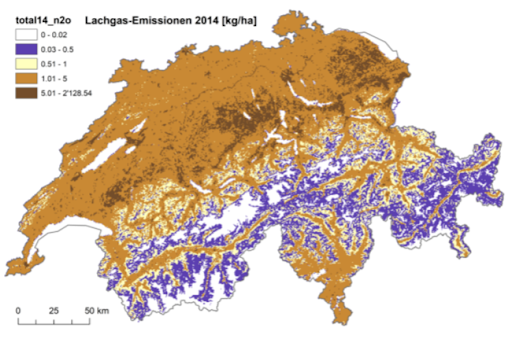
Adnan, from Pakistan completed his CLIFF-GRADS research visit at the USDA-ARS Soil and Water Conservation Unit, under Dr. Hero Gollany. He is in the final stages of his PhD at the University of the Punjab in Pakistan.
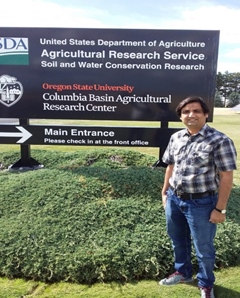
The basic objective of my training was to learn the CQESTR model and apply it to my PhD research data for its calibration and validation. My supervisor, Dr.Hero Gollany and Robert Wayne Polumsky, Physical Science Technician, guided me in a friendly and learning environment. After successfully completing my training, I can now use the Tier-II CQESTR model along with the DSSAT-Century model that I had been using in my PhD. The DSSAT-Century model is used for soil organic carbon modelling under conventional and conservation tillage in rice-wheat cropping system in Pakistan. It was a splendid learning experience for me to enhance my knowledge about soil modelling and carbon sequestration. The future outcome of this training will be depicted in my upcoming publications and research projects in my country.
From my CLIFF-GRADS training I learned new skills, knowledge and was motivated to continue to work in this field for my country. Just after my return to my home country, I convinced the director of my institute (Institute of Agricultural Sciences-IAGS) and Vice-Chancellor of my university (University of the Punjab, Lahore) to establish a climate change research lab and awareness centre. As a result, we inaugurated the first climate change awareness centre in December 2019 for students, farmers and researchers for training on climate change and modelling at Institute of Agricultural Sciences, University of the Punjab, Lahore, where a laboratory for climate change research is being established.
Currently, I am completing a PhD on ‘Modelling dynamics of soil organic carbon under conventional and conservation tillage in rice-wheat cropping system in Pakistan’. The aim of my work is to predict the soil quality loss by conventional tillage practices and protect it by climate smart techniques i.e. conservation tillage techniques. This project will help policy makers to implement mitigation techniques to reduce greenhouse gas emissions from puddled rice, which is the main contributor in greenhouse gases in South Asia and also conserve Basmati Rice land for future generations, under a changing climate.
The CLIFF-GRADS training provided me the platform to explore new research ideas, develop scientific connections and new friends from all over the world. I am very thankful for the CLIFF-GRADS award as it has provided me with such a splendid learning opportunity.
More than half of Africa’s greenhouse gas (GHG) emissions are estimated to appear from Agriculture and the LULUCF sector. This rather high share and the total emissions rate of Africa is quite uncertain, since there is a lack of basic, qualitative and open accessible measurements and inventories in large parts of the continent and its biomes. The H2020 funded SEACRIFOG Project has started in early 2017 to develop a roadmap on how to overcome these gaps and build a comprehensive GHG observation system in Africa. The interdisciplinary African-European working team comprises experts in atmospheric, terrestrial (agricultural) and ocean observation.
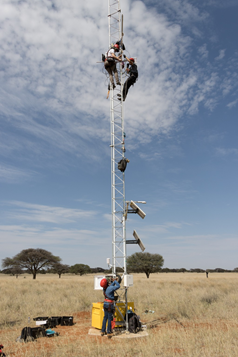
As a first step stakeholders were searched, contacted and visited during three different scientific events in West, East and Southern Africa. During the consultation workshops, the needs and gaps for GHG monitoring were discussed. The low accessibility of needed data and the need for more well educated staff, able to measure, model and interpret GHG data were mentioned. As a second step within the project it was assessed, which variables need to be measured or collected for efficient GHG monitoring. Afterwards, it was collected which measurements, data products and corresponding networks already exist or are being created in the Africa context. The database is publicly available and can be up-dated if new information arises. Scientists and policy makers can easily see which data are available in a specific country and how to access them.
Besides the assessment of existing structures, an analysis of how a basic data infrastructure for the observation data could be established and a comprehensive calculation of, where new tall tower infrastructure would need to be established to reduce a maximum of uncertainty of atmospheric measurements were carried out (corresponding paper will be published soon). Finally, a cost calculation for the proposed observation and data infrastructure shows an estimated amount of 500 M€ investment over 30 years. A significant half of the budget is planned to support human and institutional capacity building to assure local personnel for the infrastructure for local ownership.
The first meeting of the SEACRIFOG Dialogue Platform (SDP) was held on 6 July 2020. The SDP is an advisory body providing strategic and policy-related guidance inclusively. The SDP will accompany the implementation of the SEACRIFOG project into an infrastructure for GHG observations on the African continent. Future objectives and roadmaps will be set, and long-term funding strategies sought and discussed. Due to the Covid 19 crisis, the meeting was held virtual to inform the SDP members about the project’s results. 25 participants of regional or global multilateral organizations (UNFCCC, FAO, GEO, WMO), development banks, the RECs, national meteorological services, scientific societies and academies, national ministries (Europe and Africa) and the private sector joined. At the end of the meeting a lively discussion evolved. It was pointed out that there are manifold opportunities for Africa to create a science sector to observe and lower GHG emissions. Moreover, the need for national, regional and international cooperation of institutions and governments to overcome observation gaps in Africa was pointed out. The roadmap developed by SEACRIFOG itself is not enough to support ambitious NDCs, but it paves the way for a future implementation of the comprehensive African GHG observation system, which will help African policy makers to develop realistic and traceable mitigation goals.
Agriculture and land use sector play an essential role in climate change mitigation and adaptation, but there are technical, institutional and capacity barriers that make them more difficult to quantify, evaluate, monitor and report on, with respect to other sectors. As countries are preparing to raise their ambition in the new round of Nationally Determined Contributions (NDCs), it is of utmost importance that they can rely on tools and capacity development to capture their efforts in the AFOLU sector.
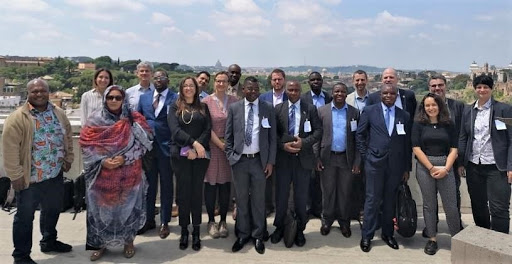
Under the Capacity Building Initiative for Transparency (CBIT) funded by the Global Environment Facility (GEF), FAO launched the CBIT-AFOLU programme to support countries in meeting the Enhanced Transparency Framework (ETF) requirements. The programme consists of both a global and 10 national CBIT-AFOLU projects. The national projects – namely Mongolia, Cambodia, Papua New Guinea, Afghanistan, Bangladesh, Sri Lanka, Benin, Equatorial Guinea, Cuba and Nicaragua – aim at addressing the capacity gaps and needs in terms of transparency. The global project focuses on producing ETF-enhanced global products, such as tools, guidance, training packages and e-learnings, to support the national CBIT-AFOLU projects and 13 pilot countries, along three main pillars: Institutional Arrangements, Measuring, Reporting and Verification (MRV) and Monitoring and Evaluation (M&E).
Pilot countries have a pivotal role in the project, as their inputs are crucial to validate and refine a series of products while stimulating country-level capacities strengthening through their use. The global project involves countries from different regions of the world, namely Guinea, Kenya, Malawi, Mozambique, Mali, Senegal, Sudan, Zambia and Zimbabwe in Africa, Myanmar and China in Asia and Colombia and Uruguay in Latin America. The identification of the pilot countries took place in two phases, the first one during the project preparation in 2017/2018 to assess the countries’ eligibility, and a second one during the inception phase in 2019, exploring countries’ interest to participate in transparency-related activities. The selection process took into consideration several aspects, from the GHG profile to the NDC pledges. To build commitment and trust, the pilot countries were asked to identify CBIT-AFOLU focal points, with a specific role and responsibilities.
In order to receive tailored support, pilot countries participated in a survey to identify the main gaps and needs to be addressed. For each component, the survey provided an understanding of which areas need the most support, which tools are the most used, and their initial feedback on their usage. Based on the results of the survey and on countries’ preferences, the implementing team facilitated individual exchanges, to familiarize with the country team and develop together country-specific work plans.
As the project activities unroll, countries will be asked to test and provide feedback on some ‘ETF-ready’ products, and at the same time they will receive specific training to enhance capacity on their usage. By addressing country views, the usability of the ETF-enhanced global products at larger scale will be ensured allowing the dissemination to a wider audience of countries and transparency practitioners.
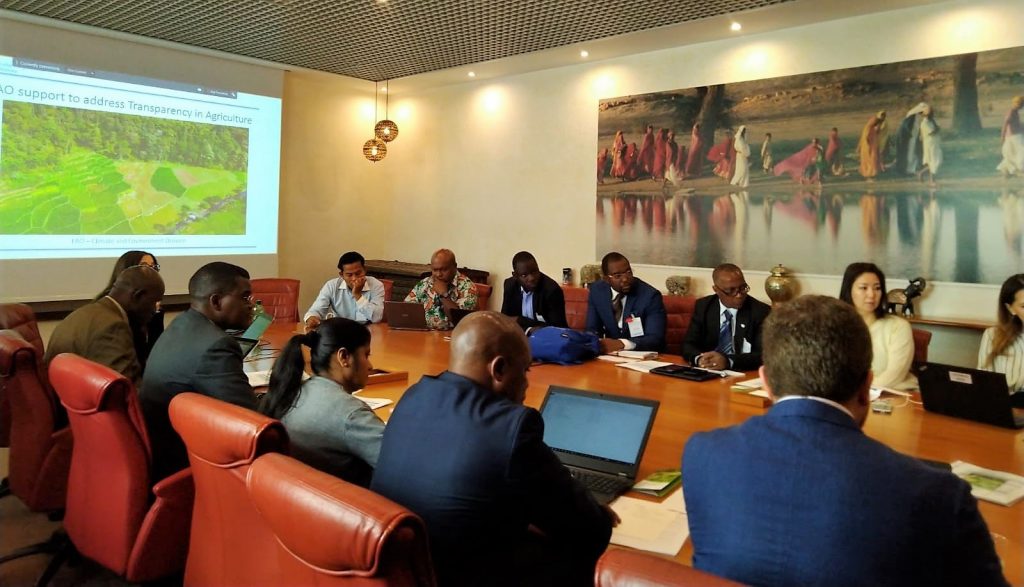
The project will also facilitate the establishment of a network of AFOLU transparency practitioners, where they can share their experiences and best practices, and learn from each other through a virtual exchange, in collaboration with other partner agencies and organizations. Beyond the expected outcomes of the project, the implementation of these activities is already bringing beneficial results, mainly related to the development of new processes of mapping countries’ needs, aligning tools to country requests and identifying the best modalities to deliver an effective and sustainable capacity development. Such achievements are particularly important in light of the limitations arising from COVID-19 global outbreak, and they are already being put in practice in an effort to replicate and upscale the process in other projects and countries.
Dr. Stephen Ogle, Colorado State University, CO, USA
The Agriculture and Land Use National Greenhouse Gas Inventory software, or ALU, was developed by Dr. Stephen Ogle and colleagues at Colorado State University starting in 2005 as part of a capacity building project in Central America. Dr. Ogle was at that time an author on the 2006 Intergovernmental Panel on Climate Change (IPCC) Guidelines for National Greenhouse Gas Inventories. He understood very well the complexity of conducting a greenhouse gas (GHG) inventory for the Agriculture, Forestry and Other Land Use (AFOLU) sector, and wanted to find a way to help compilers with the task. He envisioned that a software package could manage activity data in a relational database with an interface that had automated features to guide the compiler through the inventory process and identify errors. In turn, this could improve the transparency and application of methods in the IPCC Guidelines, help the compiler avoid errors, and facilitate the use of good practices established by the IPCC.
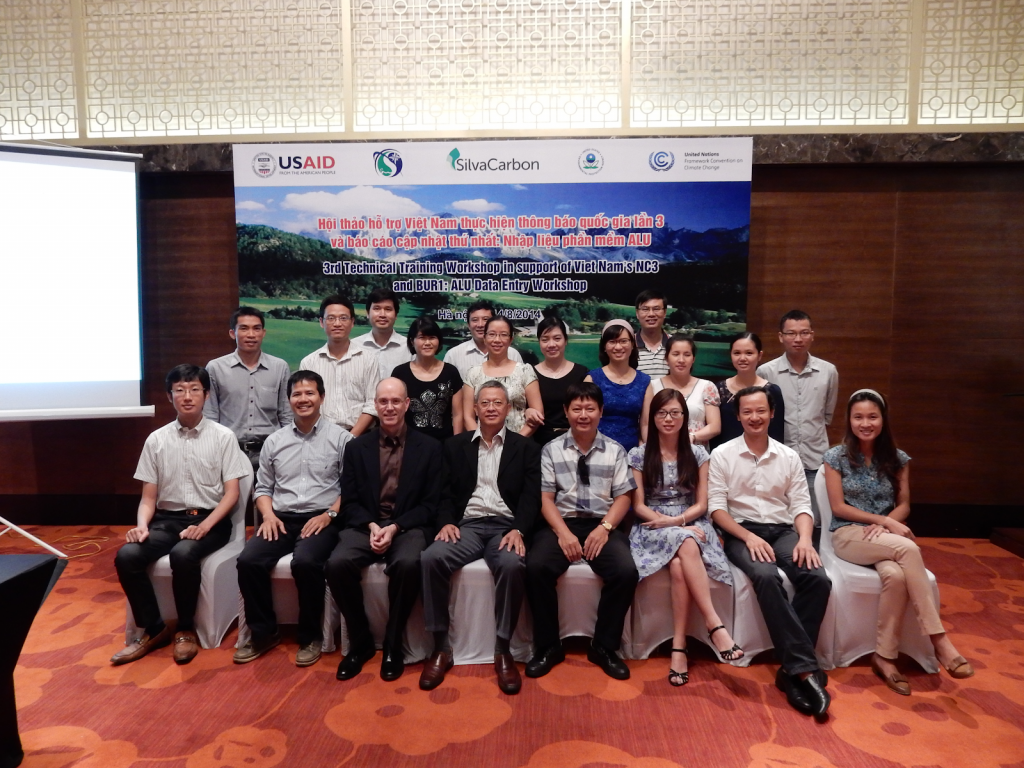
The US Agency for International Development and US Environmental Protection Agency agreed with this vision and ALU was born. These agencies have continued to fund enhancements to the software over the last 15 years, such as generating emission reports, quantifying uncertainty, importing spatial data on land use from geographic information systems, incorporating enhanced characterizations for livestock to derive country-specific emission factors, and projecting GHG mitigation potentials.
ALU is designed to guide the inventory compiler through the process of compiling activity data about human actions influencing GHG emissions, assigning default or country-specific emission factors, which are the rates of emissions per unit of the activity, and applying the IPCC equations to calculate emissions. In addition, ALU emphasizes conducting a complete inventory for the AFOLU sector with consistent methods across the time series, quantifying uncertainty in emissions estimates, following quality control and quality assurance procedures, as well as documenting and archiving the inventory data. All of these steps are integral to IPCC good practice guidance for GHG inventories.
The application of ALU has helped inventory compilers to better understand and apply IPCC inventory methods in many countries throughout Central and South America, Africa and Asia, through a variety of capacity building projects funded by the US government, UNFCCC and other partners. Further, some countries have used the software for reporting their emissions to the UN Framework Convention Climate Change (UNFCCC), or in some cases as an independent check on the reported emissions. For example, the Socialist Republic of Vietnam has used the software to compile the inventory for their last Biennial Update Report and are currently working with Dr. Ogle to further enhance their capacity to apply ALU for their next GHG inventory.
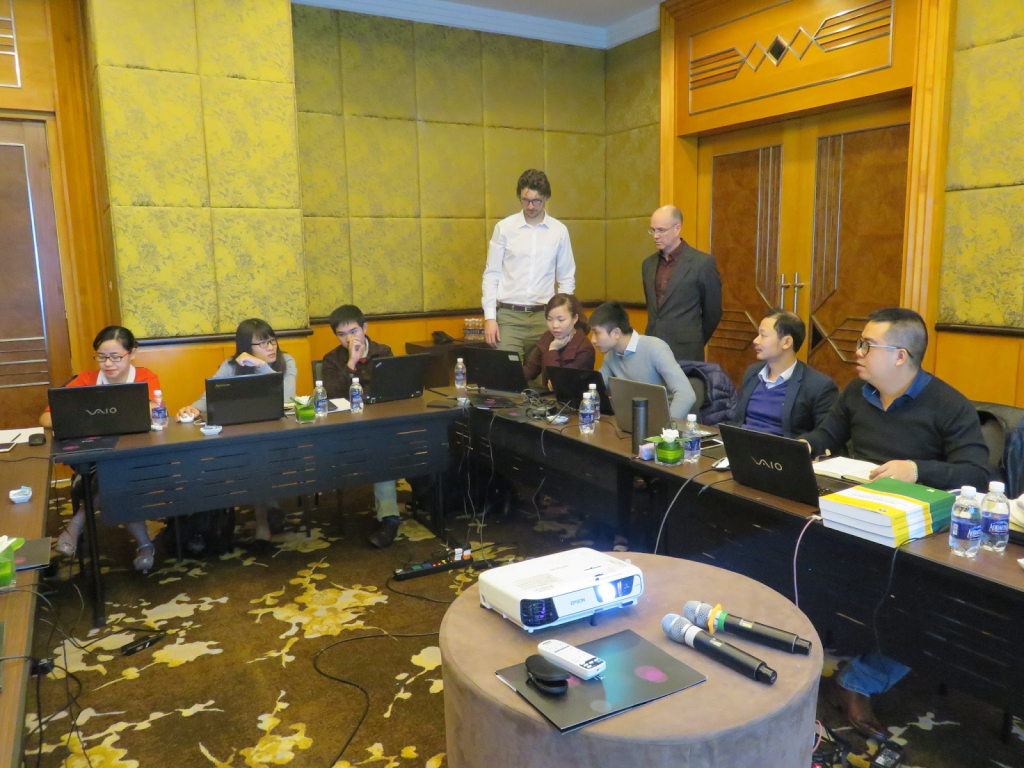
After 15 years, you might think that Dr. Ogle and his team would be ready to move onto other activities, but they still have a strong desire to help countries improve their GHG inventories as the global community struggles with ways to deal with climate change. While a fully operational version of ALU is freely available, ALU is also being re-envisioned by the team to develop the next version of the software. The goal is to make ALU more user-friendly, expand the GHG mitigation analyses, and incorporate refinements to the inventory methods developed by the IPCC, such as those found in the 2019 Refinement to the 2006 IPCC Guidelines report. These, and other enhancements to ALU, are being developed to make the compiler’s job easier to produce a high quality GHG inventory that is transparent, accurate, consistent, comparable and complete in support of climate change negotiations, policy development and implementation.
For more information, or to download a free copy of the ALU software, visit here and register to become a member of the ALU software community.
The Universidad Nacional Mayor de San Marcos, Peru are seeking three candidates for a research project funded by World Bank, ‘Defining the most fit dairy cattle genetics for profitable, resilient and environment
friendly high altitude Andean small-holder systems’.
Click here for more information about the positions and research project.
For further information please contact: Dr. Victor Vélez ([email protected]) and Dr. Cesar Pinares ([email protected])
Applications deadline 30 September 2020
